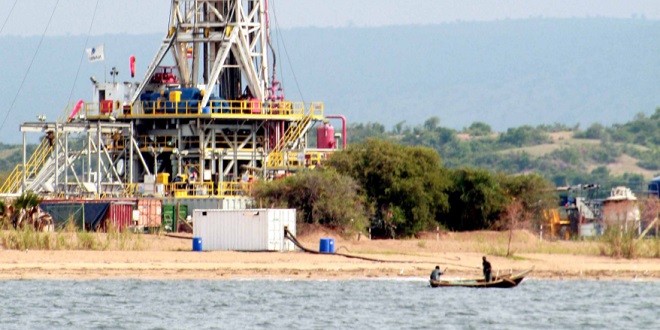
Kampala, Uganda | THE INDEPENDENT | The oil and gas sector should by now be employing thousands of Ugandans in the construction sector, but players in the industry say the sector has again slowed down.
Players in the industry say most of their labour force and equipment are redundant as the farm down tax dispute between U.K. firm Tullow Oil and government rages on.
Tullow and the government are yet to conclude negotiations about $167 million in capital gains tax assessed by Uganda Revenue Authority on the planned farm-down of Tullow’s sale of its assets to Total E&P.
Tullow Chief Executive Officer Paul McDade recently quoted by Bloomberg expressing frustration about the failure to conclude the farm-down almost two and a half years after the completion of the farm-down structure with Total E&P.
Paul McDade today on Wednesday issued the Company’s half year trading statement hinting on the fact they have been “unable to finalise this agreement with the Government of Uganda”
He said there has been limited progress with the talks with the government regarding the sale of its a stake in the Albertine project to Total and Cnooc of China.
McDade revealed that Tullow continues to work constructively with its Joint Venture Partners and the Government of Uganda to agree to a way forward to complete the farm-down and determine the subsequent timing of the Final Investment Decision.
“Nevertheless, although negotiations continue, Tullow is now also considering all options in pursuing the sale of its interests in Uganda.” Read part of the statement. The Joint Venture partners had hoped to take a Final Investment Decision during the first half of 2019.
Tullow boss now says they are now targeting FID for the development project at end of this year. Industry players say that technically means that the current slowdown in activity will continue until when an FID is reached.
French firm Total, S.A., CNOOC, and U.K. firm Tullow Oil, hold a license to develop these resources but have yet to reach a Final Investment Decision (FID) as protracted negotiations with the government continue.
So far, Tullow says the major technical aspects of the Tilenga project have been completed following NEMA’s approval of the Environment Social Impact Assessment. Geotechnical and geophysical surveys for the East Africa pipeline (EACOP) for the entire route across both Uganda and Tanzania were completed but construction work cannot begin.
“There are ongoing EACOP discussions between the Joint Venture Partners and the Governments of Uganda and Tanzania regarding key commercial agreements which are required prior to FID,” said
Is government frustrating Tullow Sale?
Ministry of Energy Permanent Secretary, Robert Kasande denied that the government is frustrating the farm-down deal.
Tullow has previously objected to the taxes being imposed by the government saying it was merely transferring its shares for reinvestment in the sector but Kasande disagrees with the argument.
He explains that there are still negotiations on how the government can manage the oil and gas resources together with the Joint Venture partners.
Some of the agreements that are yet to be concluded on the East Africa Crude Oil pipeline include; the tariff agreement, the transportation and tariff agreement, the shareholders’ agreement because the pipeline company will be a special purpose company between Uganda National Oil Company, Total, CNOOC and Tanzania Petroleum Directorate.
The two governments oil bodies together with the Joint Venture Partners also have to conclude a shareholders’ agreement before proceeding with the East African crude oil project EACOP The CEOs of Tullow and Total in January held meetings with President Museveni of Uganda and agreed on principles for the tax treatment of the farm-down to CNOOC and Total.
But sources indicate that Uganda Revenue Authority has maintained a hard bargaining stand by widening the scope of tax beyond the farm-down further maintaining the current impasse in the sector
The resultant impasse or slowdown is surely being felt by players in the construction and transportation sector. Engineer Patrick Batumbya of MBW Consulting Engineers told URN is clearly having a devastating effect on other players in oil and gas.
About 1.4 billion of 6.5 billion barrels of oil in the Albertine are estimated to be economically recoverable but they have remained in the ground.
It was expected that the Final Investment Decision would see several billion dollars flowing to put up the required infrastructure like a refinery, two central processing facilities, and a 1400 km heated East African Crude Oil Pipeline.
While the government awarded a U.S.-led group of companies including General Electric, YAATRA Africa, and the Italian engineering firm Saipem SPA the deal to finance, build, and operate the $3 billion oil refinery, construction work is yet to commence.
*****
URN
 The Independent Uganda: You get the Truth we Pay the Price
The Independent Uganda: You get the Truth we Pay the Price



